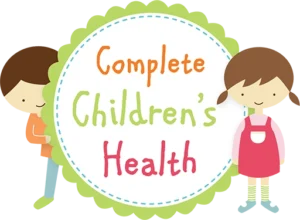By the age of three, 75% of most children’s speech is intelligible to unfamiliar people and by around the age of four, all of their speech should be understood. 
But what if it’s not?
Up to one in five preschool-age children can experience difficulty producing speech sounds correctly, either because they struggle to articulate them or because they don’t know how to use them to make their speech meaningful.
How can we help?
Early intervention is essential. Children having difficulties with language need help as early as possible and you are the best judge of your child’s language development. If you’re concerned, trust your instincts and speak with your GP, your child’s teacher and come and see our speech pathologist. Evidence-based interventions through a speech pathologist can significantly improve speech sound production and reduce the likelihood of negative academic and social outcomes.
A common concern is that if you grow up in a home where two languages are spoken you may have a language delay. However, research shows that children who learn English as a second language can reach the same language development milestones as children learning only English.
A few tips to develop your child’s speech –
Don’t rush, slow down a bit, we all get tired and want to get children off to bed, but if you are reading your child a book slow down or read to them throughout the day when you’re not as rushed. Talk about what you’re seeing in the pictures. Say, “Look at that little boy. Does he look happy or sad?” Even asking her what sounds the animals in the pictures make gets them practising their speech skills
If your child has names for things, like “bobol,” for bottle, it is important that you use the correct words, so you aren’t talking down to your child. It is always important to stay one step ahead of your child’s development stage and you can do this by using real words, not baby language.
Toddlers love music, and singing is a great way to build language. Teach plenty of simple songs, especially ones that rhyme – the Wiggles have heaps! –but don’t just plonk your child in front of the TV, you need to interact with them too.
Narrate to your child what you are doing – “ l am going to the kitchen” “I am going outside”, the more you talk, encourages their development too.
Understand your child’s comprehension by asking them to bring you their shoe, or a cup or their toy. If they are not talking but their comprehension is good this is worth investigating further.
What is a Speech Pathologist?
A Speech Pathologist is a university trained Allied Health professional who works with both children and adults. Speech Pathologists are trained to assess, diagnose and provide intervention for people with a communication impairment. Communication involves speaking, hearing, listening, understanding, social skills, reading, writing and using voice. Therefore, a communication impairment may include difficulties with:
– Articulation (speech sound production)
– Language (Receptive Language – understanding instructions and meanings, and Expressive Language – putting words together and being understood)
– Fluency (stuttering)
– Literacy (involves reading and understanding what is read in written form)
– Social communication (how we communicate and understanding the social rules of communication that are needed to develop a successful relationship with another person)
– Voice (using their vocal cords to or voice box to produce speech)
There are many different causes of communication impairment and some of these causes include developmental delays, neuro-developmental disorders such as autism, Down Syndrome and cerebral palsy, stroke, brain injuries, learning difficulties, intellectual disability, and hearing loss as well as other problems that may affect speech and language. The impact of a communication impairment can range from mild to severe. Some may last a lifetime and others may be short term. Communication impairments may impact on interactions in the home environment, at school or socially.
Speech and language difficulties, in particular, can affect learning at school, resulting in poor academic achievement. People with a communication impairment may also struggle to express themselves, and share their ideas and opinions, resulting in frustration, anger or embarrassment.
A speech pathologist can work in a variety of settings and they use assessment tools to diagnose each person’s specific area of difficulty, provide advice and devise a treatment plan that will best suit their needs. The role of a speech pathologist is to also advocate for people with a communication impairment and their families.
Another thing to keep in mind is if your child has difficulty understanding a story being told or has trouble grasping something said to them, it might be a good idea to have them evaluated by our audiologist to rule out a hearing problem.
At CCH we work with Tanya Boyd Speech Pathology and Spectrum Speech Pathology, whose dedicated team help babies, children and adolescents with Autism Spectrum Disorders, Asperger’s Syndrome and complex developmental and communication challenges. Their experience, passion and family centred approach will make the difference. They work closely with parents and their children to empower them with the knowledge and skills necessary to treat and understand communication difficulties.
With school holidays just around the corner, Spectrum are offering September 2018 Holiday Programs for School-Aged children with high functioning autism.
Ashwood Clinic – Application forms click here.
October 2018 Holiday Programs for School Aged children with high functioning autism. Essendon Clinic – Application forms click here.
Further reading
http://www.tanyaboydspeech.com.au/
https://www.spectrumspeech.com.au/
http://www.talkingpoint.org.uk/progress-checker
